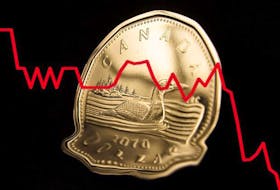After almost 5 months, most would agree that the older generations, who have been and may be medically affected by COVID-19, have been largely economically unscathed. Boomers and older generations have lived long enough to have careers, raised children, and see their pensions turned into annuities. COVID will not affect them as much. Gen Xers will also be spared as they were given a fair shot at life in general, minus a couple of major bumps such as the 2008 recession and the dot-com bust. People under the age of 30, however, will pay a dear price and are about to be renamed the COVID-19 generation.
Some have argued that a generation can hardly be defined by books written by people presenting an array of theories. There is some truth to that. Gen Xers, Millennials and Zs were born out of fiction, in a sense. A series of hypotheses led a collective of scientists to suppose that a large group of individuals share common values and see the world in a similar prescribed way. Boomers, on the other hand, were delineated by the Second World War, which in and of itself was a very powerful, transformational moment in time. It was global, and many lives were destroyed, ruined, or changed forever. Wars will change the world, have changed the world. COVID-19, in many ways, has disrupted many lives, has unfairly punished the underprivileged, women, Blacks, even discriminated against people with other fatal illnesses like cancer and cardiovascular diseases. For months now, the entire globe has been focused on one thing, COVID-19.
COVID-19 is a true threat to humanity, make no mistake. With little science, measures had to be taken whether we agreed with them or not. COVID-19 will mark many lives by the time we are done. It is humanity’s reaction to the virus that will impact a greater number of lives, billions of them. The lock downs and the economic wrath which followed will leave a definite scar on the lives of many young people.
Risk Society

The COVID-19 generation will build what we can call a risk society, a term coined by German sociologist Ulrech Beck. It will be the opposite of what most past generations have experienced, which is the influence and dominance of the nation state. A nation state society, which is what most of us have seen over time, has been focused on the production of wealth and comfort for the majority. Indeed, the nation state’s ability to fully distribute wealth has often been disputed. A risk society will be obsessed with the potential of future disasters and devastating occurrences. Some may argue that our modern society was already there.
The COVID generation will likely accept that all new risks are inherently created by humans. Modernity and progress are not seen as solutions but as threats. Younger people will see global risks like climate change very differently. Important risks for the COVID generation will often be borderless and pointing at who is responsible will be almost unfeasible - a very different way to see the world.
Implications for the food industry may be interesting. In food production, of course, some risks will be given a second and more committed look. One can think of food safety and how to mitigate risks across supply chains; the role of genetic engineering in agriculture may be questioned by a greater number of people. If a cultivar is created, or a new food product is launched, a generation fixated on risks will accept the fact that potential human diseases and food recalls are created simultaneously. Risks related to globalized industrial models to produce food may no longer be the side effects of progress but rather seen as a prominent focus of our society.
Public supermarkets?

Most countries will be coming out highly in debt and politically fractured. There are some discussions arguing that the COVID generation will lean toward an ecosocialist perspective, yet this does not in and of itself address broader needs. What may also happen is that there will be an acute allegiance to global authorities, not nation states per se. The United Nations, including the FAO and the WHO will likely have more currency in the future, not less. It will be one of the few plausible ways to address challenges like climate change, and yes, future pandemics. There will be others, no doubt, due to the globalized nature of our world.
Considering that food is a necessity of our existence, it would not be a stretch to see the emergence of publicly owned supermarket distribution networks, combined with a nationalized financial sector to help those disenfranchised by the current regime. Nationalizing some of the major agri-businesses and food processing facilities could also be a possibility. And of course, the establishment of a guaranteed income, a concept long advocated by several social groups, is now in reach for the COVID generation.
For the COVID generation, sustainability and the ethical treatment of animals could also become predominant issues affecting food. As such, any animal production will be under even more scrutiny. So, vegan and other meat-free diets may become more influential in the years to come.
For some people, cooking and gardening may last for a while. Some habits will prevail while others will not. Fundamentally though, COVID will likely create a generation for which wealth creation is not the answer but rather the source of future societal ills.
In the end though, the young, severely affected by COVID may follow older generations, yet at the very least, they deserve to be heard when the time is right.








